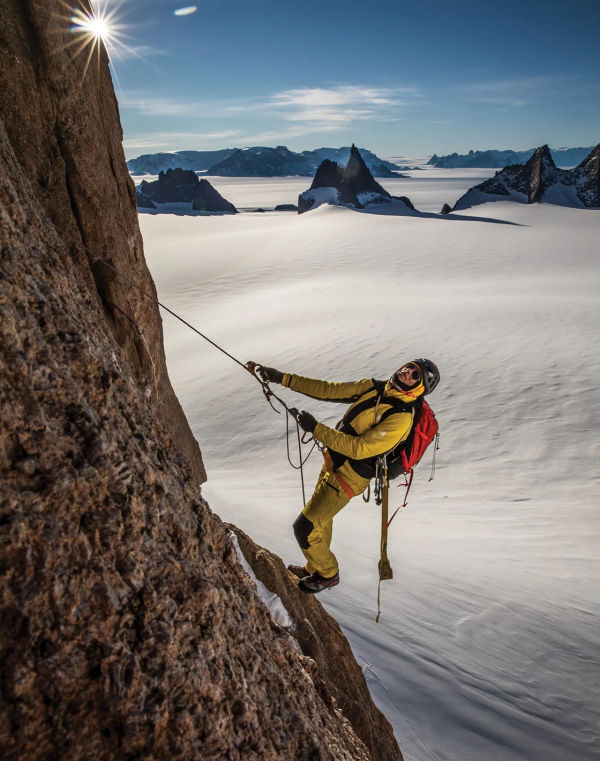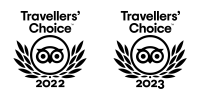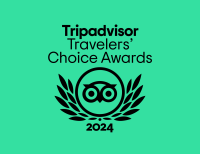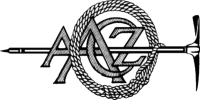- Home
- Nepal
- Adventure Activities
- Peak Climbing
- Mountain Expedition
- Local Tours
- Sirubari Village Homestay
- Ghale Gaun
- Kalinchowk Tour
- Halesi Mahadev - Maratika Cave package
- Chitwan Jungle Safari
- Day tour in Kirtipur
- Day tour in Kathmandu City
- Spiritual Tour to Muktinath
- Chitlang and Kulekhani
- Bardiya National Park
- Jeep Tour to Rara Lake
- Gosaikunda Lake
- Manakamana day Tour with cable-car ride
- 4WD Jeep Tour to Upper Mustang
- Family Holidays
- Heli & Mountain Flights
- Trekking Routes
- Kailash Mansarovar
- Bhutan
- Tibet
- Multi Country
- Domestic Flights
- Contact
- Home
- Nepal
- Adventure Activities
- Peak Climbing
- Mountain Expedition
- Local Tours
- Sirubari Village Homestay
- Ghale Gaun
- Kalinchowk Tour
- Halesi Mahadev - Maratika Cave package
- Chitwan Jungle Safari
- Day tour in Kirtipur
- Day tour in Kathmandu City
- Spiritual Tour to Muktinath
- Chitlang and Kulekhani
- Bardiya National Park
- Jeep Tour to Rara Lake
- Gosaikunda Lake
- Manakamana day Tour with cable-car ride
- 4WD Jeep Tour to Upper Mustang
- Family Holidays
- Heli & Mountain Flights
- Trekking Routes
- Kailash Mansarovar
- Bhutan
- Tibet
- Multi Country
- Domestic Flights
- Contact
Tour to Tibet (Everest Base Camp)

An exciting Trekking experience
Tibet Everest Base Camp Tour is a complete tour package that covers the major attractions of Lhasa and Central Tibet and once in a lifetime experience of Everest Base Camp. The tour is designed with Kathmandu – Lhasa fly in and overland drive out to Kathmandu back. Witness Buddhist prayer ceremonies, visit the homes of local Tibetans and observe religious customs to give you and insight into the Tibetan life and religious practices. After visiting the palaces and monasteries of Lhasa, Gyantse and Shigatse overland drive to the famous Rongphu Monastery and day-hike to North Everest Base camp from where the views of the North Face of Mt. Everest is awesome. You will be thrilled by the breathtaking views of the snow-capped peaks and Tibetan countryside. Afterwards, we drive back to Kathmandu through overland drive.
2 - 60
Detailed Itinerary
- Day 01 Kathmandu – Lhasa (3,650m):
Pick you up from Lhasa airport or Train station – Full rest for acclimatization – O/N at Hotel. - Day 02-03 in Lhasa: Two Full Days Sightseeing Tour In Lhasa
Visit Potala Palace, Jokhang Temple & Barkhor Bazaar, Drepung Monastery and Sera Monastery – O/N at Hotel. - Day 04 Lhasa – Gyantse (3950m) 250 Km
Drive to Gyantse via Yamadroke Lake and high passes: Kora LA (5,010m) & Kamba La (4,794m) – Hotel. - Day 05 Gyantse – Xigatse (3,900m): 90km
AM: Sight-seeing in Gyantse including Pholkor & Kumbum Monastery. PM: scenic drive to Xigatse (1.5hrs) through the typical Tibetan Countryside- Hotel. - Day 06 Xigatse – Xegar (4,100m): 270km
AM: Visit Panchen Lama’s Tashilhumpu Monastery. Then Drive to Xegar via Shakya Monastery crossing over Gyatchula (a pass of 5,200m) – O/N at Guest House. - Day 07 Xegar – Ronbuk (4,980m): Aprox 90km
Scenic drive to Ronbuk through the beautiful Tibetan countryside. Explore Ronbuk Monastery (highest monastery in the world) – O/N at Guest House. - Day 08 Ronbuk – Everest BC – Kerung (2,800m) 370 km
Rent a horse cart or walk to the Everest BC and explore around – back to Ronbuk – Drive back to Tingri and further to Kerung by over-crossing the high pass of lulang La (5,050m) from where one can enjoy the magnificent view of the Mt. Xishapagma (8,212m) & Mt. Cho Oyu (8,201m) and have overnight at Kerung Guest House. - Day 09 Kerung – Kathmandu:165 km.
After necessary border formalities continue scenic drive to Kathmandu through the green lush countryside- transfer to your Hotel. End of tour.
This trip can be redesigned or redeveloped as per your taste, For more information please e-mail us at This email address is being protected from spambots. You need JavaScript enabled to view it.
Cost and dates
We do small group trek or private trip as your request.
For quick information / contact us at whatsapp/viber + 977 9841815039
Or Drop us inquiry at This email address is being protected from spambots. You need JavaScript enabled to view it.
Tips & Resources
What's Included
- Private transportation as per the group size
- English speaking Tibetan Guide
- Accommodation on twin sharing room basis except guest houses
- Daily breakfast
- Everest base camp entry permit
- All Monastery entry fees as per your itinerary
- Tibet travel permit
What's Excluded
- Lunch & Dinner
- Train or Air fare of any sectors
- Insurance of any kind
- Natural or political disturbance which beyond our control…
- Personal expenses such as drinks, tips, porter charge etc.
Equipment List
For Head:
- Sun hat or scarf
- Light balaclava or warm fleece hat
- Sunglasses with UV protection
Far upper Body:
- T-shirts
- Expedition thermal tops
- Fleece jacket
- Wind-Stopper jacket
- Down vest and jacket
For Hands:
- Lightweight warm gloves plus thick gloves
Lower Body:
- Hiking shorts
- Lightweight cotton long pants
- Light and expedition weight thermal bottoms
- Fleece or wool pants
- Waterproof (preferably breathable fabric) shell pants
For Feets:
- Lightweight inner socks
- Thick, warm wool hiking socks
- Hiking boots with spare laces
- Camp shoes
Accessories:
- Sleeping bag rated to below zero degrees
- Headlamp
- Small pad or combination lock-to-lock trek bag
- Large plastic bags - for keeping items dry inside trek bag
- Day-pack (approximately 2500 to 3000 cubic inches)
- Water bottles
- Toiletries
- Small wash towel
- Walking sticks
Useful Info
The Trip costs will Vary Depending on the Group Size, duration of days and Services required please contact us via our website with your Details to obtain a Quote.
Frequently Asked Questions
The best time to visit Tibet is from April to end of october.
Currency in Tibet is Renminbi (RMB). Foreign currencies cannot be used directly. Foreign currencies may be converted into RMB at all banks, bank branches or hotels at the exchange rate quoted on the foreign exchange marker on the day.
Most of the internationally accepted credit cards are usable in Lhasa. They include: Visa, MasterCard, American Express, Diner's club, and the JCB card of Japan. Credit cards are accepted only in large shopping stores. Credit card symbols are displayed in the visible place in shops and hotels indicating credit cards are accepted.
We accept major two ways of payment:
- Wire transfer [we will send you our company bank account info via email];
- Credit card [we will send you a credit card authorization letter via email]
You need to have at least six months valid passport, a valid China visa (if you are coming from mainland china) Tibet group visa (if you are coming from Katmandu we will do in Kathmandu) and a Tibet travel permit.
If you are travelling to Tibet from mainland china then you need a valid Chinese visa which you can obtain at Chinese embassy in your home town
No, because Tibet is a part of China, if enter Tibet from other cities in China mainland and after the trip in Tibet, get back to China mainland again, only a single entry visa is required.
Before you are coming to Lhasa from Katmandu, you must get Tibet group visa from Katmandu because no matter you've already got the visa in your country or not, you must get a visa in Katmandu.
- Step 1: After you book the tour with us, provide us your copy of passport.
- Step 2: We will apply the 'Visa Invitation Letter' from Tibet Tourism Bureau with your copy of passport and send it Kathmandu.
- Step 3: After your arrival in Katmandu, we will ask your original passport, and then we go to the Chinese Embassy to apply the Tibet group visa. With the 'Visa Invitation Letter', you can get your Tibet group visa easily. Normally, it will take 3 working days.
You can get the Tibet Travel Permit easily through a travel agency except diplomats, journalists, and government officials who should travel to Tibet under the arrangement by the Foreign Affairs Office of Tibet Government.
Yes, we do have Group Tour or joining Tour. Let us know your interest and time then we will provide you options to join the trips.
- More than 30 days before trip start date – 10% of land cost
- 15-30 days before trip start date – 20% of land cost
- 7-14 days before trip start date – 30% of land cost
- 4-6 days before trip start date – 50% of land cost
- Less than 4 days before trip start date – 100% of land cost
Hotels in small cities and the Everest Base Camp are very simple.
Tibet large and deluxe hotels usually provide wireless access to internet for guest rooms. But there are still some hotel rooms, not all, in Lhasa and rest Tibetan cities don’t have access to internet, so you should inquiry your guide for internet access hotels.
24 - Hour hot water supply depends on different hotels and hostels where you can check first, do some preparation or choose an available one in major cities like Lhasa, Shigatse and Gyantse. But it’s hard to find perfect one in remote and harsh places.
Tibet owns its distinctive Tibetan food, like Tsampa,Tibetan Noodle, Momo, Milk Curd, Yogurt and local dishes. With the development of tourism, there are more cuisines brought into Tibet, e.g. Sichuan Cuisine, western food, Nepali food, Indian food and many other Chinese cuisines. In Lhasa, tourists have a wide range of choice while limited options in remote towns and areas.
If your arranged tour is mainly in downtown Lhasa, you can easily get to Potala Palace, Jokhang Temple, Barkhor Street or nearby attractions at short distance by walking or taking a local rickshaw. If you want to tour around Lhasa, we suggest you to use minivan as the road condition around Lhasa is pretty good, and the minivan cost less as well.
Here are the lists of medicine:
- Diamox (most common medicine for the high altitude sickness).
- Aspirin
- flu tablets
- throat lozenges
- nasal decongestants.
Get adequate rest and drink lots of water, Administrating oxygen can help if the symptoms are worsening. The real treatment for acute high altitude sickness is descending down to lower altitude as soon as possible. If the patient doesn’t show any improvement in 3 to 4 hours. patient should go to hospital for proper treatment. High altitude sickness can be deadly if it is not treated accordingly.
Following are categories of people who should avoid visiting Places of higher altitude;
- Women with an advance pregnancy
- Children under three years of age
- Traveler with severe fever, cold
- Patient with Acute pulmonary diseases
- Travelers with acute cardiovascular diseases
Visit us
-
JP Marga, Thamel, Kathmandu, Nepal
-
+977-01-5365371
-
+977 98418-15039
(Whats App, Viber & Telegram)








